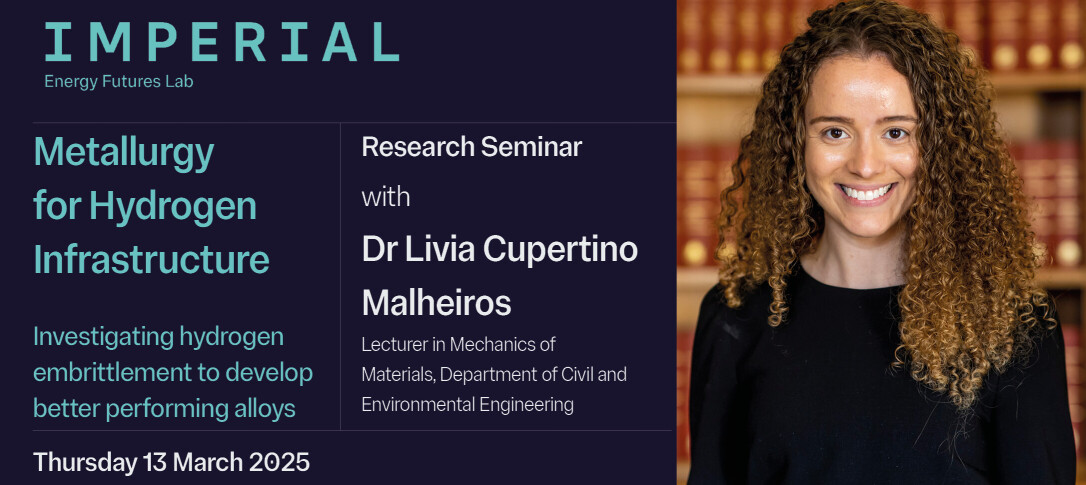
Metallurgy for Hydrogen Infrastructure
Investigating hydrogen embrittlement to develop better performing alloys
A wide variety of commonly used metals and alloys are susceptible to hydrogen embrittlement (HE), i.e. hydrogen atoms diffuse into metals reducing their load-bearing capacity and ductility, which currently limits the design of structures in many industrial sectors, notably energy and transportation. HE is strongly related to hydrogen interactions with the metal lattice structure and its crystallographic defects, such as interfaces, dislocations, second-phase particles and vacancies, as well as local mechanical states (hydrostatic stress and/or plastic strain). Therefore, understanding the underlying mechanisms of hydrogen-assisted fracture requires fit-for-purpose testing methodologies capable of capturing the specificities of the fracture mechanisms of each alloy-hydrogen system. This work shows recent developments in fracture testing for hydrogen-assisted fracture of steels and nickel. The results provide new insights into the threshold conditions that determine the HE fracture mode and the preferred cracking path as a function of hydrogen concentration, depending on the hydrogen-containing environment to which the alloys are exposed.
Speaker
Dr Livia Cupertino Malheiros is a Lecturer in Mechanics of Materials and an MSCA Energy for Future Fellow in the Department of Civil and Environmental Engineering at Imperial College London. Her research focuses on scientific breakthroughs and materials solutions that can accelerate the energy transition, including a wide range of multidisciplinary engineering challenges, such as providing infrastructure for hydrogen production and transportation, durable offshore wind turbines, and more sustainable manufacturing routes for alloys.
About Energy Futures Lab
Energy Futures Lab is one of seven Global Institutes at Imperial College London. The institute was established to address global energy challenges by identifying and leading new opportunities to serve industry, government and society at large through high quality research, evidence and advocacy for positive change. The institute aims to promote energy innovation and advance systemic solutions for a sustainable energy future by bringing together the science, engineering and policy expertise at Imperial and fostering collaboration with a wide variety of external partners.